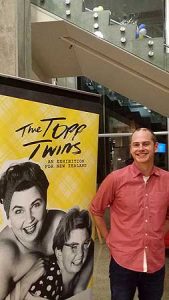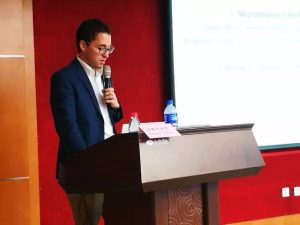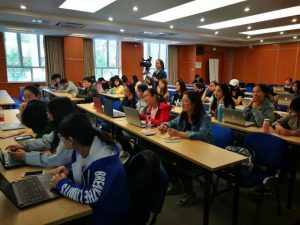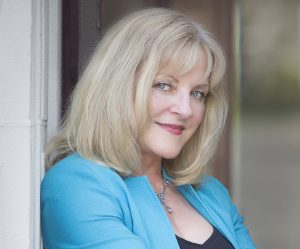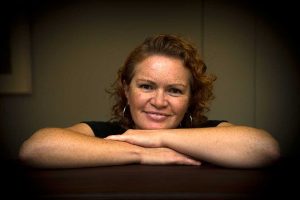Well done to our creative writing postgraduate students Nataliya Oryshchuk and Janet Newman – both have exquisite pieces of work published in the latest issue of Swamp (and Janet has three!).
Category Archives: News
Topp Twins ‘striking example’ of power of popular culture
Best First Book Award for Massey PhD student
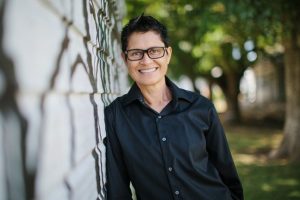 Current Massey PhD student Gina Cole has won The Hubert Church Best First Book Award for Fiction for Black Ice Matter, a collection of short stories that explores connections between extremes of heat and cold. Listen here to Jesse Mulligan’s interview with Gina.
Current Massey PhD student Gina Cole has won The Hubert Church Best First Book Award for Fiction for Black Ice Matter, a collection of short stories that explores connections between extremes of heat and cold. Listen here to Jesse Mulligan’s interview with Gina.
MCW graduate makes the airwaves
Annabel Wilson, a Massey Master of Creative Writing graduate, had her theatrical poem “No Science to Goodbye” recently broadcast on Radio New Zealand. Annabel’s play is based around her 2014 MCW thesis.
Visiting Fellow – Peking University
David Gruber was recently chosen as one of ten Visiting Fellows to The New Zealand Centre at Peking University, 2017 (http://nzc.sfl.pku.edu.cn/10VFS.html). As a result, in April, he traveled to Peking University in Beijing and delivered an invited talk entitled, “Neuroscience and the Media.” He discussed his own research into the public understanding of neuroscience and outlined future trajectories of the field area, encouraging more cross-cultural and interdisciplinary research projects. During his visit, he also met with professors from Peking University’s School of Communication and Journalism to promote Massey’s School of English and Media Studies. Toward the end of the week, he had the opportunity to visit an English class where he met with students and gave a thirty minute lecture on the importance of re-writing.
Brian McDonnell publishes fourth book
Brian McDonnell’s new book on the 2004 New Zealand film In My Father’s Den has been published by boutique UK publisher Kakapo Books which specialises in New Zealand material. In My Father’s Den is widely regarded as one of the most important films ever made in New Zealand and also as one of the boldest and most radical adaptations of a classic New Zealand novel. Dr McDonnell’s book is an extensive, painstakingly researched and copiously illustrated analysis of this key film. It scrutinises Maurice Gee’s 1972 novel In My Father’s Den, which is the source of the film’s story and delineates closely the process by which scriptwriter/director Brad McGann took the book’s core and made it his own, while reimagining its central ideas and characters for the 21st Century. McGann’s brilliance as both a writer and a director are addressed with key sequences selected for closer examination in order to highlight the film’s intricate texture. Brian McDonnell hopes his book will confirm In My Father’s Den as an undisputed classic of New Zealand cinema.
In My Father’s Den is also the first book in a projected series of short books (called New Zealand Film Classics) that are focused studies of single films, rather in the tradition of the famous BFI Classics series. Series Editor is UK academic Dr Ian Conrich and Brian McDonnell is Series Consultant. Each book is devoted to providing a comprehensive appreciation of eminent, momentous and acclaimed New Zealand movies that have been viewed as key texts within the history of New Zealand cinema. It is envisaged that one or two new books in the series will be published yearly, written by local and international academics and other specialists in the field. Among films already chosen to be part of the Film Classics series are: Heavenly Creatures, Came a Hot Friday, Whale Rider, Out of the Blue, Rain, The Piano, Boy, Rewi’s Last Stand, Once Were Warriors, An Angel at My Table, Ngati, Broken Barrier, Sleeping Dogs, Sons for the Return Home, Smash Palace, Bad Blood, No.2.
This is Dr McDonnell’s fourth book about film, his best-known previous work being the Greenwood Press Encyclopedia of Film Noir which he co-wrote with Australian film scholar Geoff Mayer in 2007.
Jack Ross on Radio New Zealand
Jack Ross spoke to Radio New Zealand’s Lynn Freeman about Poetry New Zealand: Yearbook 2017, featuring new and well established writers. Jack has selected 125 new poems from hundreds submitted internationally, and supplemented them with essays and reviews by other writers keen to get people talking more about poetry.
